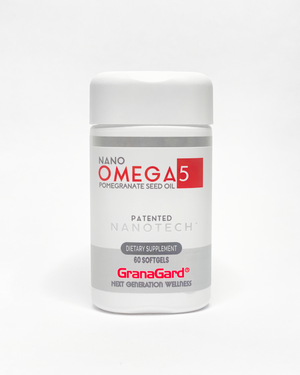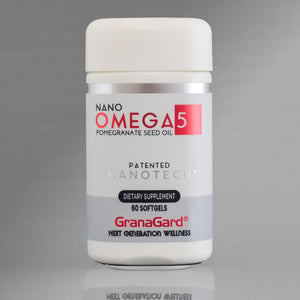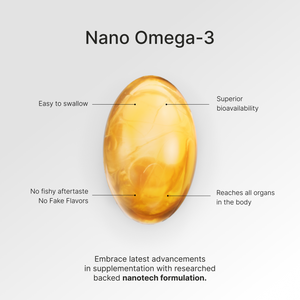Until recently, it was believed that the number of neurons only decreased and that no new neurons appeared. Today we know that this is not the case; neurogenesis, which is the process of generating new neurons, is real and influenced by several factors. One of these factors is the calories in our diet.
How Calories Are Related to Health

Until now, we only considered that high-calorie diets promoted overweight and obesity, which in turn were triggering factors for a long list of diseases, including: the development of high blood pressure (hypertension), high LDL cholesterol, low HDL cholesterol, high triglyceride levels (dyslipidemias), type 2 diabetes, coronary artery disease, cerebrovascular disease, sleep apnea, osteoarthritis, respiratory difficulties, some types of cancer, anxiety, depression, digestive problems, and other conditions that can also impair quality of life.
Low-calorie diets – diets with low calorie content – have generally been associated with the treatment of overweight and obesity. (Oxidative Stress and Obesity)
What we didn't know was that the number of calories in our diets directly influences the brain and nervous system.
How Many Calories Are Good for the Brain
In recent years, research conducted by different groups with different experimental models has found that there is a relationship between high-calorie intake and the low production of new neurons.
An indirect confirmation of these findings is the results of other studies that have shown that the consumption of a low-calorie diet favors functional neurogenesis, i.e., the generation of new neurons in the brain that are capable of integrating and working with the rest of the nervous tissue.
In these studies, it was evident that the experimental animals that received low-calorie diets processed information from the environment more efficiently. For example, they had a better sense of direction compared to the animals that consumed high-calorie diets. For ethical reasons, this type of research could not be developed in humans, but there are strong indicators that similar results would be obtained: high-calorie intake will negatively influence cognitive abilities.
What Relationship Has Been Found in Humans
Epidemiological statistics have shown the association between the development of neurodegenerative diseases such as Parkinson's disease and Alzheimer's disease with people with a history of high-calorie diets. Although these two conditions develop differently, there is a common factor between them: altered neurogenesis.
When talking about humans, it is important to consider the consumption of junk food, which consists of ultra-processed foods that are harmful due to their high-calorie content and lack of essential nutrients. Recent studies have revealed that ultra-processed foods can accelerate general cognitive decline (memory, (Antioxidant Supplement for Short Term Memory Loss) attention, concentration) by up to 28%.
A Harvard neurology professor, Dr. Rudy Tanzy, referred to ultra-processed foods with the following quote: "they tend to be high in sugar, salt, and fat, which promote systemic inflammation, perhaps the greatest threat to healthy aging of the body and brain."

Regarding the replacement of ultra-processed foods with a healthy diet, Dr. Tanzi stated that "it is particularly important for brain health and reducing the risk of age-related brain diseases such as Alzheimer's disease." A healthy diet is also characterized by its high antioxidant content. (What Are the Best Antioxidant Foods)
The diets followed by the populations of the Blue Zones, (The Blue Zones) where the inhabitants are distinguished by achieving great longevity, both physically and mentally healthy, despite often being in opposite parts of the planet, share common characteristics; their diets are characterized by being low in calories and rich in antioxidants.
By analyzing these realities, we could begin to understand through their brains the reason for their preserved cognitive abilities in very advanced ages. Studying the brain, we would find that: a low-calorie diet would favor neurogenesis, the formation of new neurons, while antioxidants (What Are Antioxidants in Simple Words) would protect them, prolonging the life of both new and existing neurons. Extrapolating these benefits to the rest of the body could be an explanation for their longevity.
How to Take Care of Ourselves and Protect Ourselves
Daily routines, schedules, the distances between work and home, along with a series of other circumstances, do not allow us to enjoy a healthy diet. Most of the time, they force us to seek "fast food" which usually falls into the junk food category.
It's not just for cardiovascular health, (Benefits of Omega 3 for Cardiovascular Health) or the prevention of obesity and diabetes, now we have another good reason to avoid excess calories: to preserve our brain health and cognitive abilities as much as possible. An occasional hamburger won't hurt us, but what we must avoid is having a diet composed of junk food or other sources with a high-calorie intake.
Let's take care of our health and our brain! Let's not overdo it with calories, let's adopt a healthy diet, and also ensure good antioxidant protection with Nano Omega 5 from GranaGard®.





